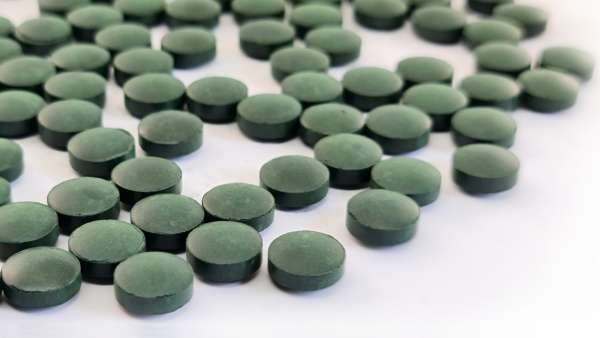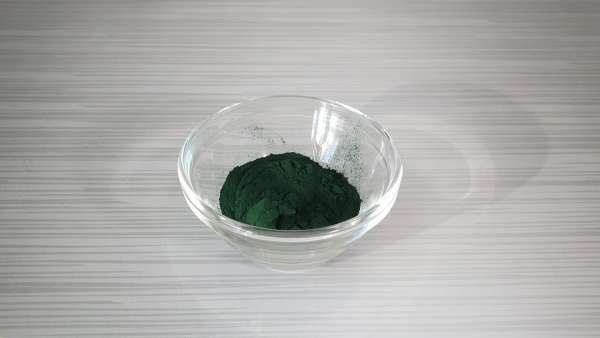Spirulina
Spirulina and everything you need to know about it
Spirulina is an incredible dietary supplement, rich in chlorophyll, with countless benefits for the body. Spirulina can be consumed in the form of tablets or powder.
Spirulina, for those who do not know, is a biomass of cynobacteria, such as blue-green algae, which can be used as a food supplement, both by humans and animals. This supplement is rich in nutrients, so it can be used as a complete food.
In dry form, spirulina contains 5% water, 24% carbohydrates, 8% fat and about 60% protein.
Nutritional information per 100 g
Being a product that can be used as a complete food, spirulina contains several nutrients that support and even replace the necessary daily intake:
- protein: 50 – 70% of the total value;
- carbohydrates: between 7 and 14%;
- lipids: 6%;
- vitamins: A, B1, B2, B3, B6, B12, D, E, K;
- pantothenic acid;
- biotin;
- folic acid;
- Omega 3 and Omega 6;
- antioxidants: chlorophill, used to detoxify the body, but also strenghten the immune system (recognized benefits of spirulina);
- minerals: manganese, copper, iron, zinc, selenium, phosphorus and rich in calcium;
- isoleucine, leucine, lysine, methionine, phnylalanine, threonine, tryptophan and valine.
The benefits of spirulina
There is no secret that spirulina has countless benefits that we would not have expected from such a product. From effective skin care to the fight against more difficult diseases, spirulina is the supplement you need for a healthy life.
The first and perhaps the most important benefit of spirulina is that it fights diabetes, cancer, heart and liver diseases. One of the beneficial effects of spirulina consumption is that it lowers blood cholesterol levels. If consumed regularly, spirulina keeps the heart healthy and significantly reduces the occurrence of cardiovascular disease. Also, through the active ingredients from the composition, spirulina stimulates the growth of antibodies and other cells that help immunity and protect you from cellular oxidation, but also from free radicals that influence the apprearance of cancer, heart disease, lung disease and diabetes.
Spirulina helps the digestive system by maintaining a healthy intestinal flora. Over time, if these supplements are taken regularly, you will not have problems with digestion and the level will be optimal.
Among the active ingredients in spirulina, there is also tryptophan, an amino acid that stimulates the production of serotonin, important for mental health. In addition, various studies have shown that spirulina fights Parkinson’s disease, reducing memory problems.
Spirulina helps you fight candidiasis. A significant percentage of women experience vaginal candidiasis at least once in their lives and spirulina successfully treats this infection. Studies have also shown that spirulina has an immunostimulatory and antimicrobial effect, promoting the development of a healthy flora.
Among the countless benefits offered by the administration of spirulina is the fact that this product helps you have healthier bones and teeth, keeps skin young, strenghtens the immune system, prevents anemia and helps you lose weight, stay fit and have energy.
Contraindications and side effects
Usually, people do not have intolerance to spirulina and side effects are not present. Spirulina is a dietary supplement and not a medicine. However, if you have certain diseases such as hyperthyroidism, autoimmune diseases or kidney disease, it is recommended that you seek medical advice before taking spirulina supplements. Also, you should purchase this dietary supplement from safe and not counterfeit sources, because it is about your health here. If the spirulina purchased is not pure, side effects such as nausea, bloating, diarrhea, rash, mild fever, vomiting may occur.
For the pregnant women and children, the administration of spirulina should be done only after consulting a specialist.
Spirulina can be consumed by anyone, from age of 3 (for children who have an unbalanced diet or if they do not eat enough vegetables). Spirulina can be consumed by vegetarians for extra nutritional intake, by teens, pregnant women, adults and the elder people who have irregular meals or unbalanced diets, athlets who exercise and even people who are in convalescence.
How spirulina is administered
This dietary supplement is available in several forms: capsules, powder, granules and tablets. It is recommended that spirulina to be administered in the morning with a little water and for half an hour to avoid the consume of alcohol, soft drinks or coffee.
During the period when spirulina is administered, a high intake of fluids is recommended to facilitate the absorption of nutrients. Spirulina treatments should not be longer than three months, with breaks of 15-30 days between them. If you want to maintain a longer cure (one year or more), it is recommended to visit a specialist.
What does spirulina taste like
Due to its origin (algae), spirulina has a specific taste that may be pleasant for some people and unpleasant for others, but you can quickly get used to it. Some specialists recommend consuming spirulina along with the daily dose of supplement in drinks or with various recipes. Also, because you can find spirulina in different forms, you can buy tablets, so you do not face the unpleasant taste.
Spirulina is an incredible dietary supplement with countless benefits for the body. Spirulina can be consumed in the form of tablets or powder.


Comments